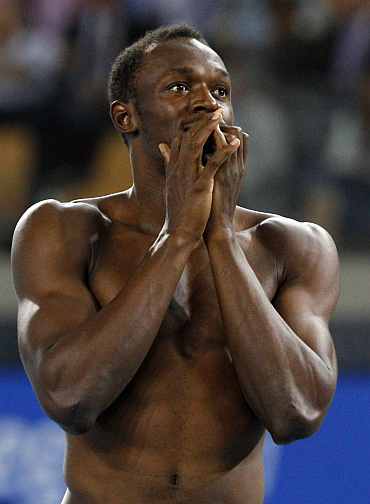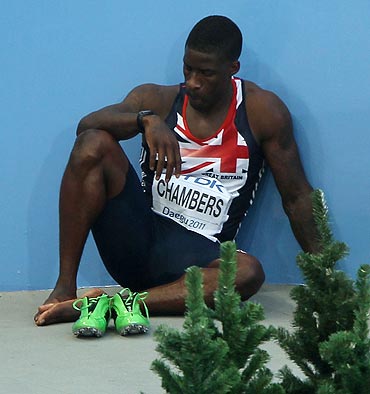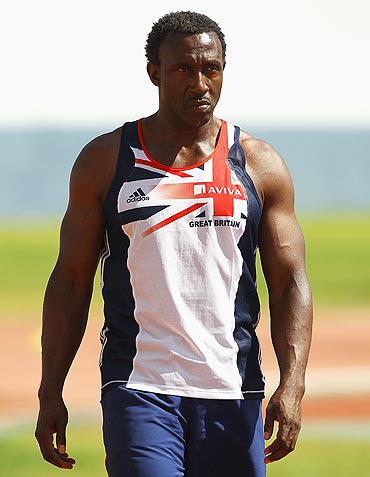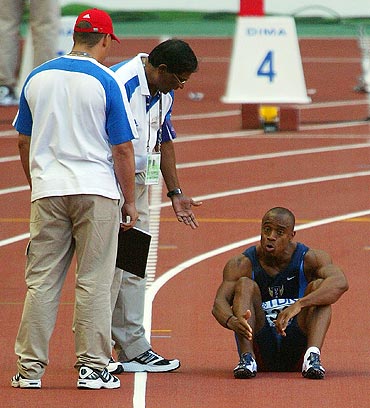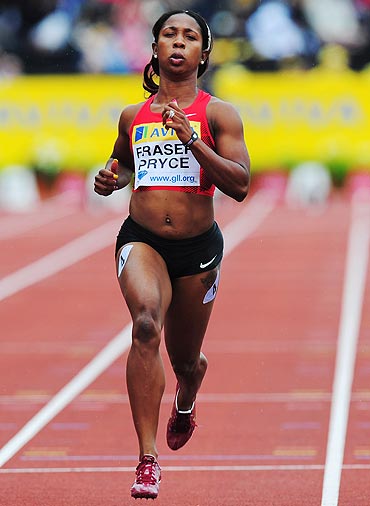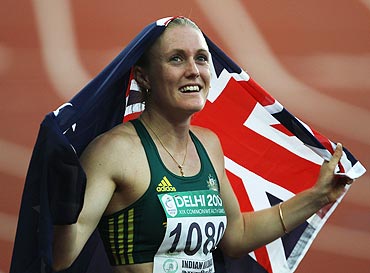 | « Back to article | Print this article |
Infamous false starts at World athletics events
Jamaican sprinter Usain Bolt false-started and failed to finish in the 100m at the World Championships on Sunday. He was subsequently disqualified for leaving the blocks far too early.
The world record holder left the Daegu arena in frustration, grimacing and beating a wall with his hand.
In addition to Bolt, Britain's Olympic 400 metres champion Christine Ohuruogu and sprinter Dwain Chambers had already felt the full force of the rule in these championships.
Both were eliminated from the competition for leaving the starting blocks early.
New rule introduced in an attempt to speed up the sport for television
Under the rule introduced last year, athletes who false start are immediately disqualified.
Prior to the new rule, one false start was allowed, with a second meaning the disqualification of the offender.
The no-second-chances rule was introduced by the world's governing body in an attempt to speed up the sport for television and make it more attractive to spectators.
This is not the only time a big name missed out after disqualification. There are a few names that are part of this list.
Click NEXT to check out the athletes who fell victim to false starts
Christie jumps the gun at 1996 Olympics
The first instance of false starts ruining a major event came at the 1996 Atlanta Olympics.
It was Great Britain's Linford Christie who jumped the gun at the event.
Previously you had to make two false starts to be disqualified and the former BBC Sports Personality of the Year did what was never done before -- made two false starts to be disqualified from the 100m run.
Adamant Dummond disqualified
American sprinter Jon Drummond, known for being among the world's best starters, was disqualified in the quarter-finals of 100m at the 2003 World Championships in Paris, for a false start.
However, he stood his ground claiming that he did not false start and shouted repeatedly 'I did not move'.
He was so adamant about his claim that he delayed competition for almost an hour by refusing to leave the track. He eventually left the track in tears.
'I hate this new false-start rule'
Another such episode occured at the Rome Diamond League meeting in June last year when women's 100m World champion Shelly-Ann Fraser was disqualified for a false start.
Following her disqualification at the time Ann-Fraser made known her dislike for the new false-start rule that came into effect last January.
"It was very devastating and I cried because this was the first time in my career something like this was happening to me," remarked Fraser.
"I hate this new false-start rule. I definitely do not like it," she added.
Pearson loses gold at Delhi CWG
And, most recently, it was at the Delhi Commonwealth Games where Australia's Sally Pearson was left in tears after an English team protest stripped her of a gold medal in the 100 metres.
Pearson was provisionally disqualified and England's Katherine Endacott, who was fourth, received a bronze medal after an appeal by Australia was rejected. The gold went to Nigeria's Osayemi Oludamola.
England protested after Pearson avoided disqualification for a false start on the second of three attempts to run the final. She and England's Laura Turner jumped the gun but referees awarded a red card only to Turner on the grounds that her reaction time was the quicker one. Turner refused to leave the track, insisting the noise in the stadium was so loud that she had not been able to hear the starter's orders. After a long argument, the referees relented and allowed her to race under protest.
Turner finished last, Pearson first. But England claimed that Pearson should also be disqualified as she appeared to move off the blocks before Turner. Pearson admitted in a post-race interview that she had 'twitched first'.
